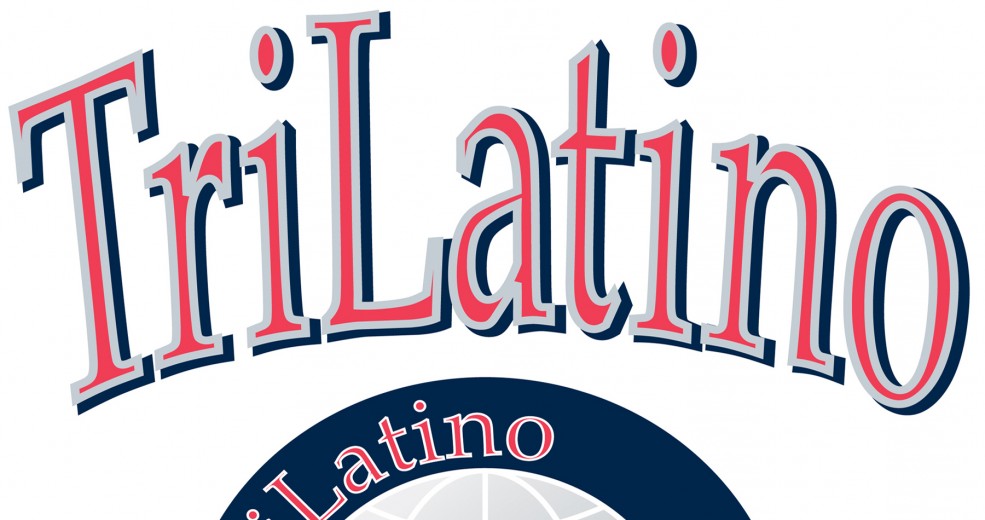As part of Men’s Health Week 2015 we take a look back at a unique athletic club that is breaking down barriers and saving lives – Welcome to the TriLatino Training Club
Olympic runs, triathlons, Iron Man competitions – these endurance events that combine biking, swimming and running in one shot – are not for the faint of heart. Yet Latino tough guys are barely seen amongst their ranks of competitors. That is until TriLatino came along.
TriLatino Training Club, a New York City-based non-profit, was formed in 2009 after its founding members saw the lack of ethnic diversity in the sport and the poor health people in the Latino community were in. “We started TriLatino to alleviate the health disparities and problems we saw – high rates of diabetes and obesity [among them] – and to create a presence of Latinos in the sport,” says Jose Stevenson, Vice-President and Director of Youth Development and Outreach who co-founded the group.
The 180-member club started out modestly. “It was a group of six of us,” Stevenson recalls of their humble beginnings. “We thought if we had a team of 20 it would be a success. We finished the year with a team of 40.”
TriLatino has become a movement all its own that’s grown exponentially every year since it began. With a group that’s 60% Latino and is split between men and women, everyone – Latinos and non-Latinos alike – have joined their cause. “To be a member we like to say you just have to have a ‘little bit of salsa’ in your soul,” Stevenson says of the multicultural brood he considers family. The best part is anyone, from beginners to hardcore competitors, is welcome.
The response to the club has been encouraging.
“The triathlon community has been receptive to the idea, especially white male triathletes who said we need to show the world [these events aren’t] just for rich white men,”
Stevenson says. He explains that on average 88% of those who compete in these events make an average income of $111,000 a year and less than 3% are Latino.
Why the brown-out? Stevenson believes cultural norms play a role. “The sports we’re into are baseball, boxing,” Stevenson says. Tri-Latino Junior Team, a group of Bronx high school students, is their answer to engraining healthy lifestyles and a new generation of endurance athletes into the community. He recommends it as a sport because, “It’s a great healthy lifestyle that you can ease into.”
Still, resources are an issue.
“There’s nowhere [to train] and financially, there are huge barriers of entry; a bike, shoes, clothes, wet suit, registration fees. It adds up to five digits quick.”
This is why the group, which is operated by volunteers and fundraises for expenses, keeps its fees low. Stevenson, a Puerto Rican Bronx native, turned to endurance events largely thanks to his father’s example. “(My father) was diagnosed with advanced stage prostate cancer when I was in high school,” he recounts. “He was told he had two years to live. Primarily through exercise and diet, he beat it.”
With that as inspiration, Stevenson got serious about his physical health and decided to do a triathlon in 2006. His mistake, he says, was trying to train himself for his first major event. “It was an epic fail,” he says laughing. The following year he joined Team in Training where he met his fellow TriLatino co-founders. When he was asked to help form the group his busy schedule made him resist but he says he couldn’t get the idea out of his head.
“I loved the idea of a tri-athlete club with a greater, larger purpose besides training.”
Running marathons and hard-core training were nothing new for Nick Rosello, 40, who joined the group in 2009. The financial analyst from Brooklyn had gotten serious about his health in 2006 when seeing a video of himself at 230 pounds left him stunned. Rosello decided to recapture his student athleticism — he rowed crew and was a long distance runner – and began running again to lose weight. One year and 55 pounds later, Rosello decided to run the New York City Marathon and began training with local running clubs when he met TriLatino founders. Once they started a club, he jumped in. “It was a no brainer – it was the people,” Rosello said of what made the club different than other groups he’d trained with.
“The first time I hung out with that core group it’s like I was a home, it felt familiar and I was hooked.”
The self-proclaimed adrenaline junkie, Rosello, who has Panamanian and Puerto Rican roots, went from marathons to triathlons to the big daddy of events, The Iron Man, which he successfully completed at Lake Placid with his TriLatino team in 2011. “When I was ready to do Iron Man, I couldn’t see doing a race of that magnitude without people I called family,” Rosello recalls.
The family, if TriLatino has anything to do with it, will continue to grow in the years to come.
“We’ve had people want to start clubs in cities like Washington, DC and Boston,”
Stevenson says.
“In 15 years, I see TriLatino being in a number of cities all over the country.”
With the strong bonds competition fosters and the welcoming atmosphere Tri-Latino offers, its clear TriLatino will continue to impact lives wherever they choose to go.
Interested in joining? Simply want to learn more? For more information about TriLatino visit their website, www.trilatino.org

